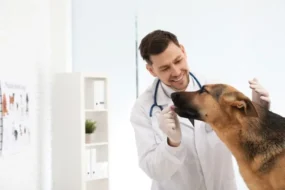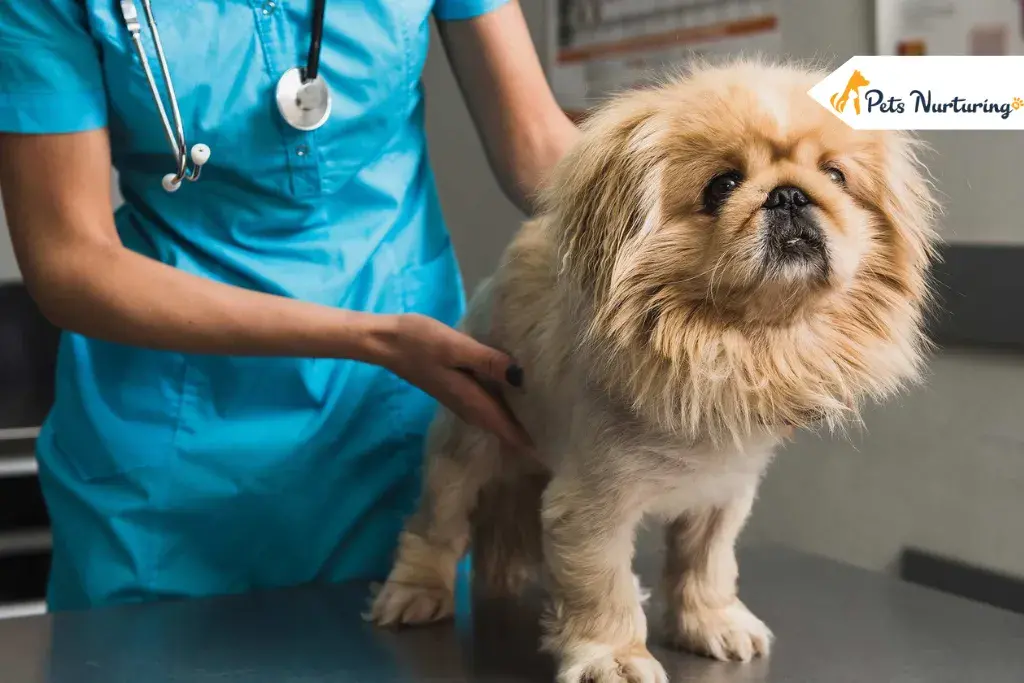
I don’t know how to contemplate this feeling. I had always wanted to stay away from this topic. It’s pretty depressing. By god’s grace, none of my dogs have been diagnosed with lymphoma. There are many diseases out there that affect a dog’s health. However, nothing is incurable. Within a week or two, it will be happy again playing and jumping around. Having a dog is the most beautiful feeling ever. You have already read the title, so you already know what I am going to talk about – lymphoma in dogs.
You have a companion to share your feelings, spend your sad and happy moments, take on trips, have a house vacation, and whatnot. From bringing it home to grooming it for a healthy lifestyle, you do everything possible. Every breed has a lifespan. Some live 12 years, some 15 years, and some dogs can live up to 20 years too!
I will be straightforward from the start. To make it easier for you to understand, dog lymphoma is similar to cancer in humans. There‘s the only treatment, no cure. However, many expert vets have stated that around 70% of dogs experience complete remission after chemotherapy.
Let’s understand this better with the detailed information.
What is Lymphoma in Dogs?
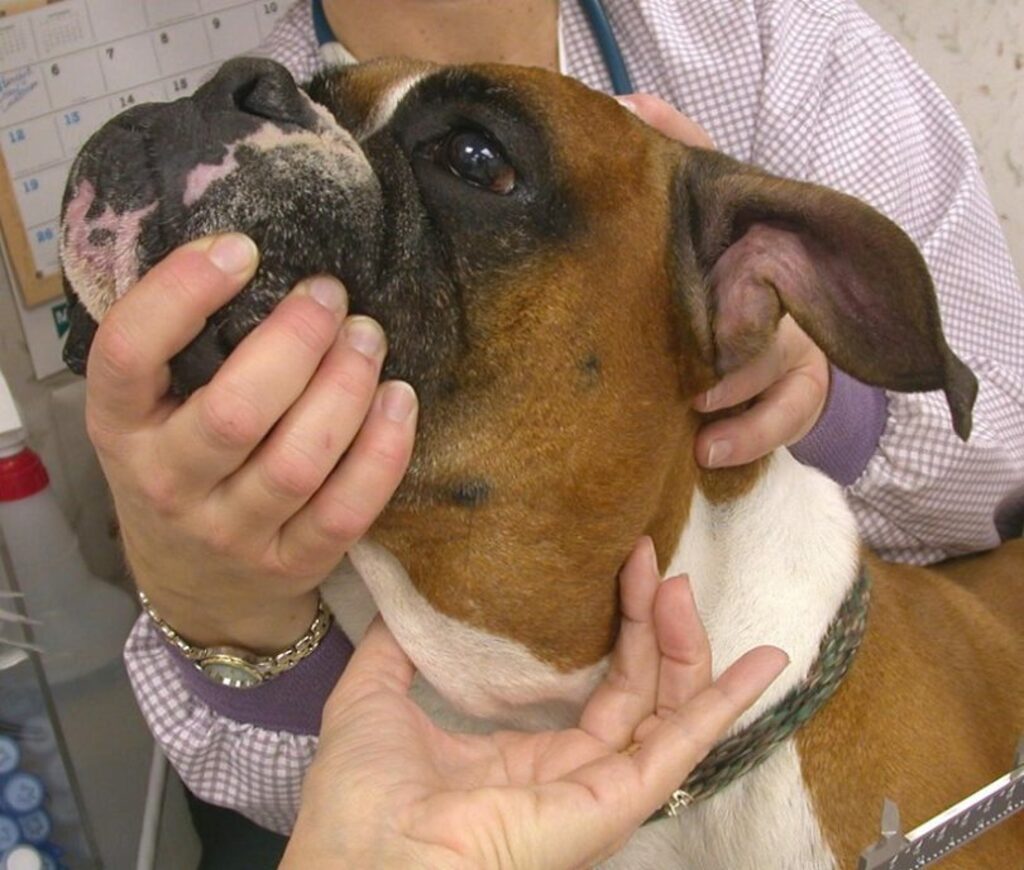
Lymphoma is a disease that can persist both in people and pets, while in the case of a dog it is called canine lymphoma. According to The National Canine Foundation, it is one of the most malignancies diagnosed in dogs. And as said earlier, there’s no cure for it.
This causes when cancer affects the body’s lymphocytes (the white blood cell that protects human beings as well as animals from catching the infections – immunity cells). The cancer cells of lymphoma are generally found in lymph nodes.
There are four different main types of lymphoma a dog can suffer from, and there are as follows:-
Multicentric Lymphoma: The most common lymphoma in dogs, around 85% of total lymphoma cases are Multicentric. It starts from lymph nodes and then spreads to lymph tissues in the body.
Mediastinal Lymphoma: A lymphoma that develops in the lymph tissue of the chest, restricting the lung function.
Extranodal lymphoma: The lymphoma cancer cells are found in the central nervous system, lungs, kidneys, eyes, or skin of a dog. This is the rarest lymphoma.
Alimentary lymphoma: The effects will be seen in Intestinal problems, such as upset stomach and vomiting—only 10% of dog tests with alimentary lymphoma.
What are the Symptoms of Canine Lymphoma?
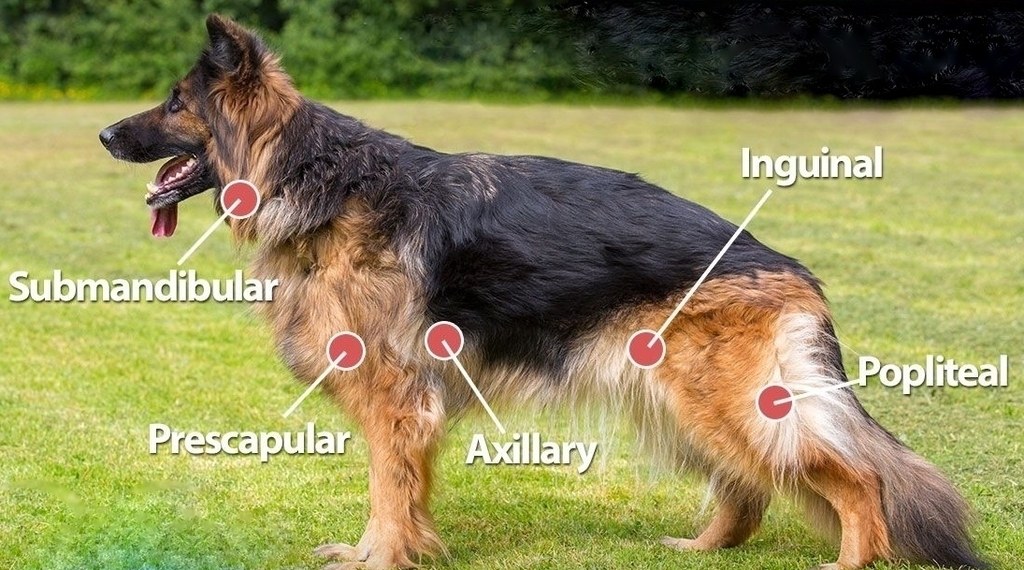
Normally, 60% to 80% of dogs don’t show any symptoms (asymptomatic) and feel well at the time of diagnosis too. If we talk about an advanced level, a different type of lymphoma has different symptoms. On a general level, you will see the following symptoms in your dog:
- Hardened lymph nodes
- Breathing problem
- Less to no appetite
- Behavioral changes
- Weakness
- Diarrhea
- Excessive thirst
- Vomiting
- Weight loss
- Lethargy
What Causes Lymphoma in Dogs?
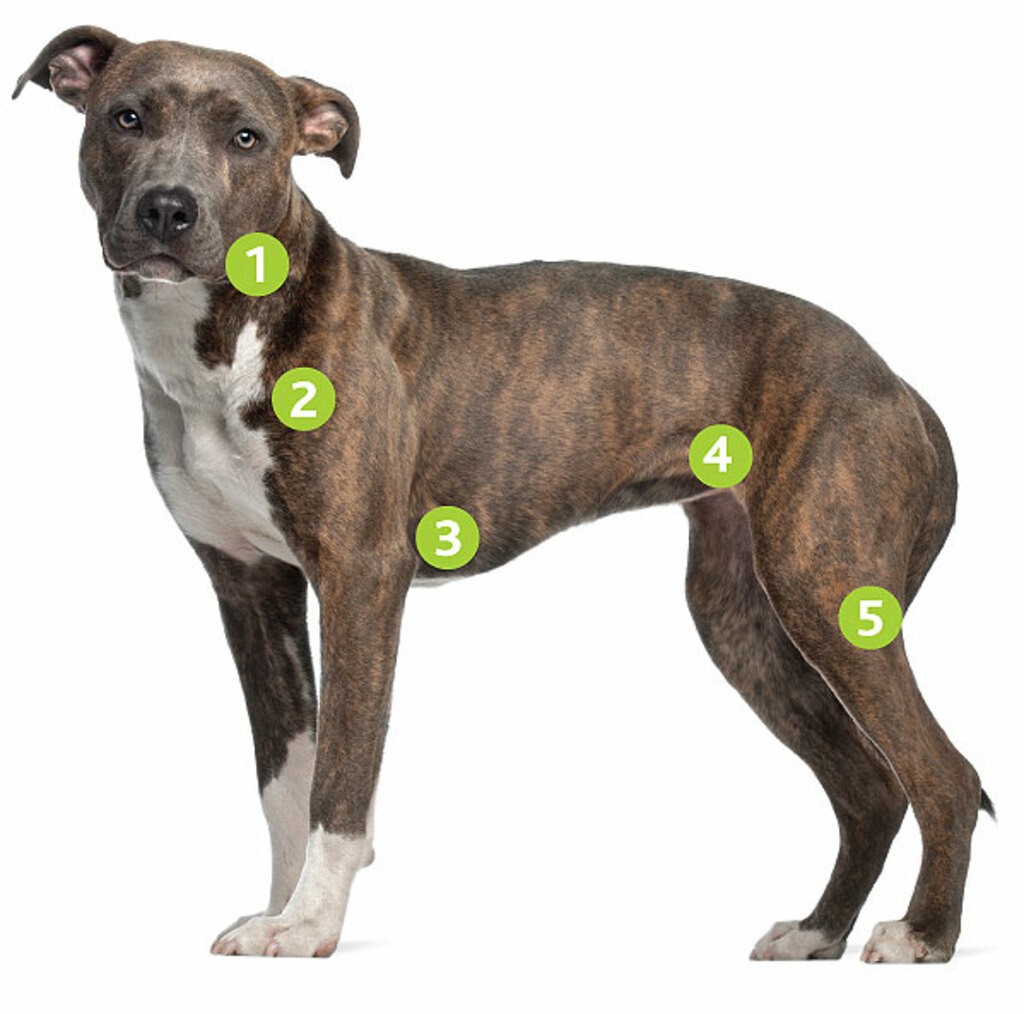
There’s no particular carrier for lymphoma in dogs. It can be genetic too. Other causes mentioned by a few veterinarians are exposure to the magnetic field and phenoxy acetic acid herbicides. It can be the result of other environmental factors too. It is hard to tell what the exact cause can be!
If it was there, I guess the percentage of dogs affecting with lymphoma had been decreased by now!
Which are the Treatments Available for dog Lymphoma?
As said mentioned above, there are only treatments available for lymphoma in dogs, no cure. So here’s a piece of brief information on treatments available for dog lymphoma.
1. Chemotherapy
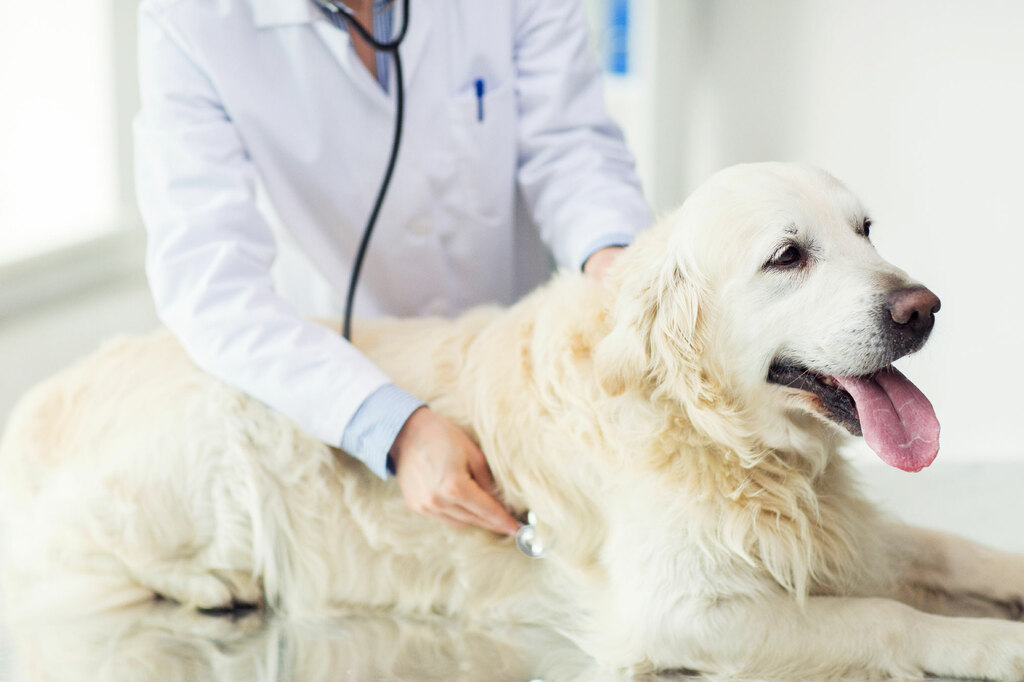
The most effective treatment option is chemotherapy only. The chemotherapy involves giving the combination of drugs to the dog for a period of several weeks or months. In 90% of cases of giving chemo to dogs has resulted in it entering the remission, which can be partial or complete.
The most common chemo treatment is of UW-25, which lasts six months. This treatment includes weekly chemo sessions for two months and sessions every other week in the last four months.
The cost of this treatment may cost you between $5,000 and $7,000. After the entire chemotherapy, the dog’s average lifespan is extended up to 9 months to 13 months (in most cases).
The result is uncertain because it depends on how your dog reacts with the treatment. What if the reaction is adverse? (I will get to it later, first let’s see which other option you have!)
2. Radiation and Surgery
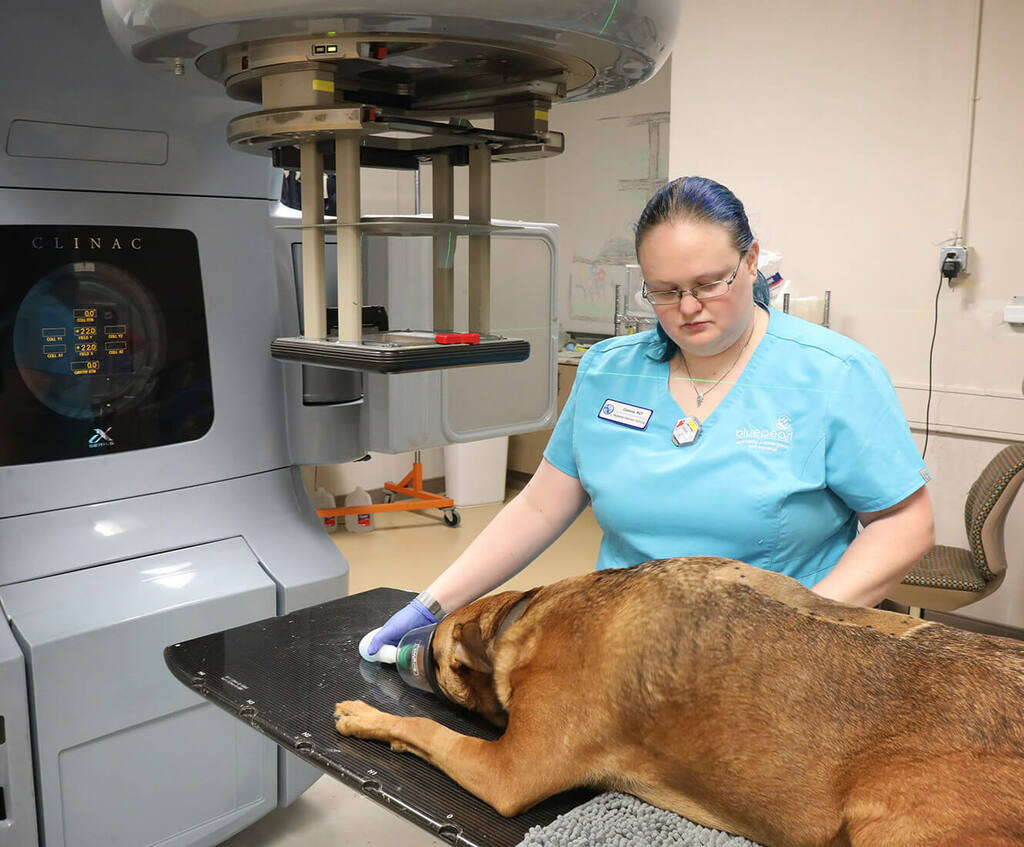
Okay, this isn’t ideal for every type of lymphoma. Opt for radiation or surgery treatment only if your vet recommends. Ask about the chances of recovery and everything. (It might get hard, but that’s necessary).
If your dog is diagnosed with cutaneous lymphoma (a subtype of extranodal lymphoma), and the tumors are there on the skin (early-stage), or gastrointestinal lymphoma where the tissue hasn’t reached the surrounding, your vet will suggest surgery or radiation.
Remember it is going to be painful for your dog. If the vet assures the positive result, you might consider going for it (a little pain is okay, if it is going to have a wonderful life ahead).
As for cost, it depends on what type of surgery it is. For a rough idea, it can cost you from several hundred to thousands of dollars.
Things to ask your Veterinarian:
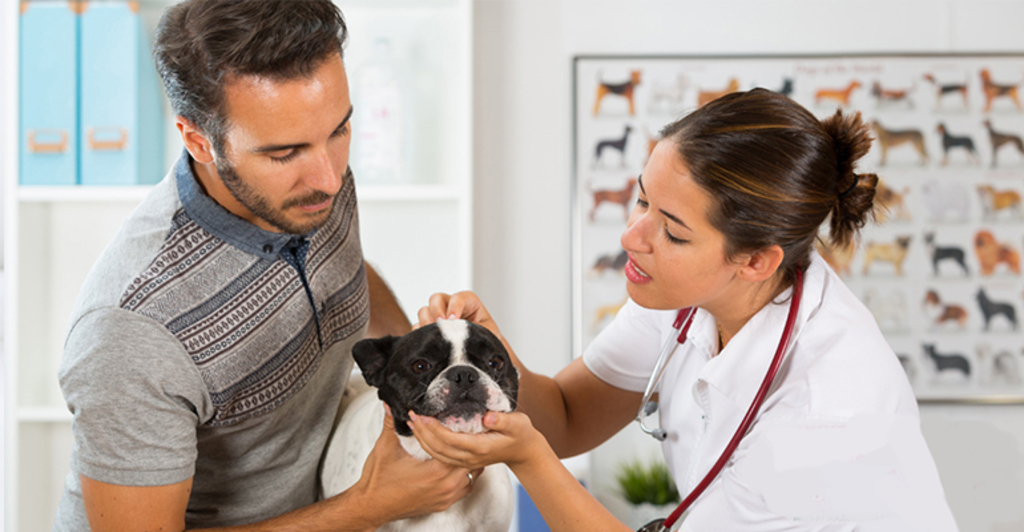
Many people make the mistake of not asking questions to their vet. I understand it can be difficult for you. After all, it’s your baby. You may tear up while talking about it, but it is necessary, or else how will you know the exact situation. Here are a few questions that you must ask your pet’s doctor:-
- What type of cancer and stage is it suffering from?
- Which treatment option will be best for it?
- What side effects can a treatment have?
- If not chemotherapy, can I go for prednisone for my dog?
- Is it infectious? I have other pets at home too, are they at risk too?
- Are there any policies related to putting a dog down?
- Can parents be there while euthanizing the dog?
- After remission, can a dog live a happier life?
- What average time does it have?
Dog Lymphoma: When to Euthanize?

This is a bit depressive topic. If I had a choice, I would definitely skip writing this part. Alone thinking about euthanization sends a chill down my spine. Though it is most peaceful for your dog, you won’t want your dog to go away from you.
The question is – When to euthanize a dog? How to know if it is the right time?
Many pet owners ask this question to their doctor. I will share an event that happened to one of my friends. They had a labrador named – goofy. He was diagnosed with lymphoma. They talked to the vet and considered every treatment option, and they settled with the chemotherapy.
After goofy completed the six months of chemotherapy, he entered into the remission period. However, suddenly after 3 months, he started feeling very sick, vomiting, diarrhea, fatigueness, constantly lurked around him.
They were too scared to put him down and let go. Then, the vet explained to them how he will continue to suffer even after countless chemos and prednisone. He will eventually die a painful death. Instead, opt for euthanasia.
With this method, we will inject the drug dosage, which will shut off his heart and brain. This is the most humane method of death. Euthanasia is derived from the Greek word, which means ‘good death.’
It was hard for them, but euthanasia was the best option for goofy, t move into heaven with peace. So I guess it is clear when should you opt for that option. Sometimes your vet may suggest this, and in other cases, you will have to make decisions or your own.
Even so, make sure you have a talk with a pet’s doctor. He/she will guide you through the entire process and will also tell you if it is the right decision. It will be hard for you to accept this and come out with it. You will trust me.
Final Word:
You can’t deny or reverse god’s act. There might be a reason he did this, be strong, and accept what fate has given you. I am not saying to give up on your pooch, rather do your best to provide a healthy lifestyle. However, if you notice it to suffer more and enjoy less, it is best to put it down and have a peaceful departure.
For additional insights:










